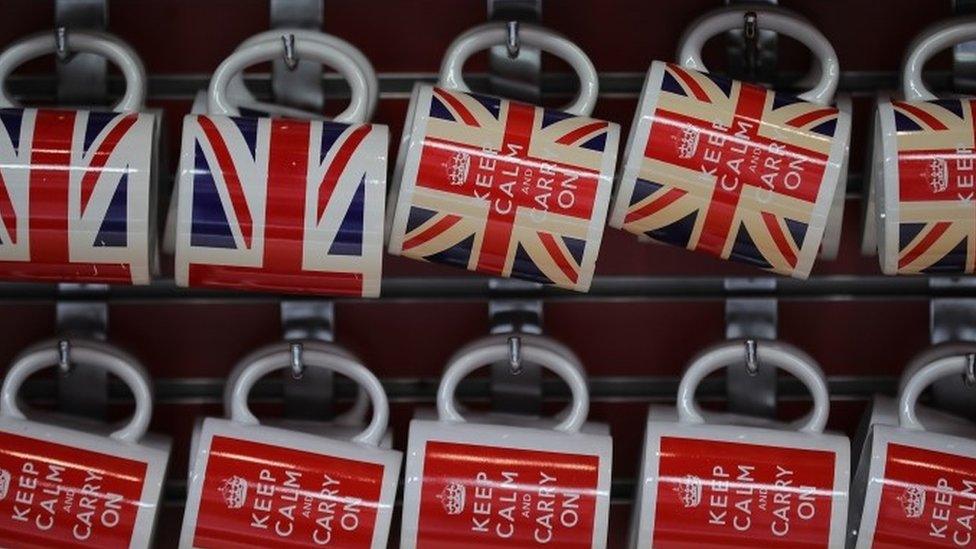Wales' firms watch from sidelines ahead of Brexit trade talks
- Published
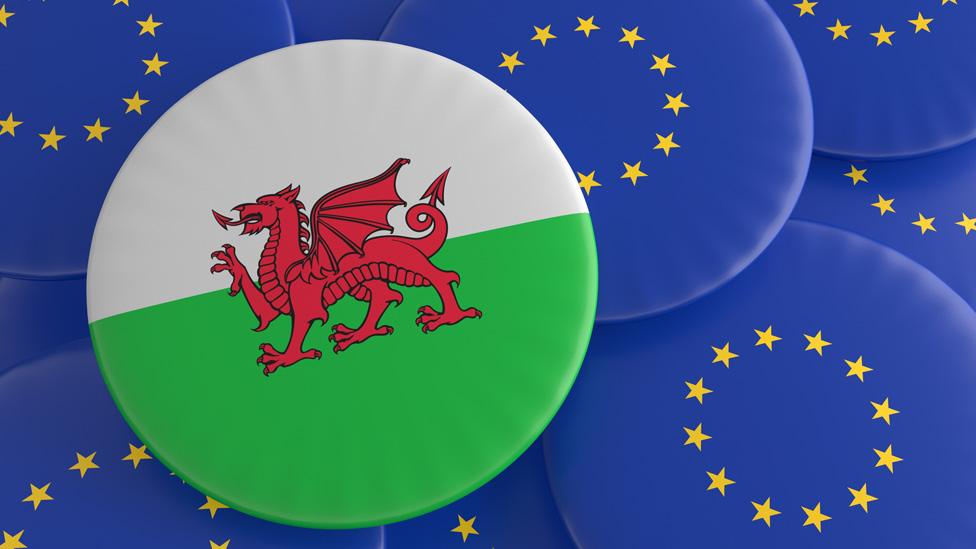
Brexit and its possible effects are dominating the general election campaign even though no political party can know what sort of deal will eventually be forged.
Companies will be watching from the sidelines with huge interest because Wales is currently more tied into the EU's single market than any other part of the UK, with the greatest proportion of our exports going there.
From the late 1980s, there was an influx of investment into Wales from abroad, particularly from Japan, as foreign firms looked for a foothold in the European market.
Those foreign firms based here will be keeping a close eye on developments, as will home-grown Welsh businesses.
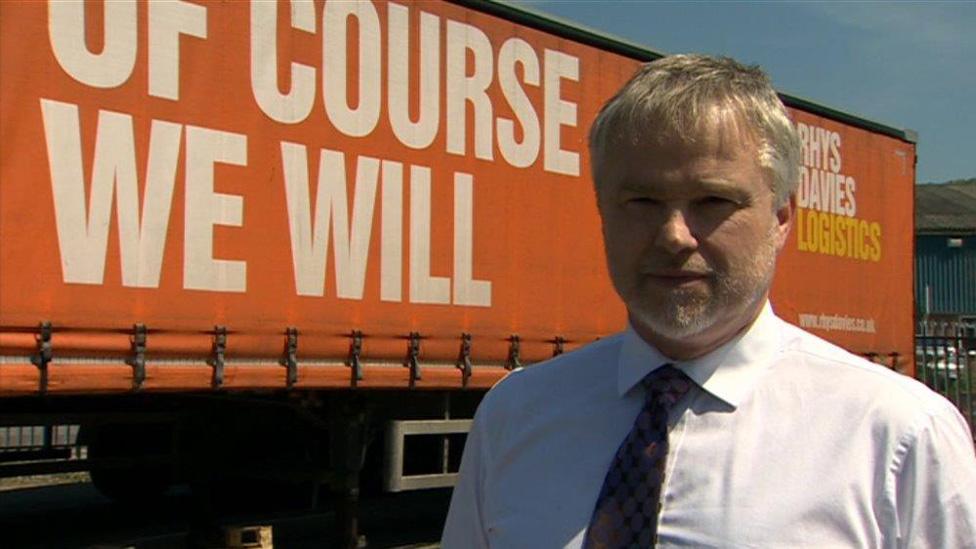
Gary Phillips says trading in Europe is as easy as with the UK currently
Red tape tangle?
Rhys Davies Logistics is a south Wales haulage company founded 65 years ago, before the UK joined the EU.
Based in Taff's Well, near Cardiff, it now employs 400 staff and works across the world.
Gary Phillips, forwarding and commercial manager, said the single market has helped with deliveries, making it easier when crossing borders.
"Whether Yorkshire, Madrid or Paris, it's just the same," he said.
"From a logistics perspective it's made the job easier. In days gone by, pre-EU, there was an awful lot of paperwork to complete at crossings and borders.
"Trucks would be held up, sometimes for 24 hours. As it stands, the borders have gone, now it's not dissimilar to a UK delivery."
But dealing with countries outside the UK can cost time and money.
"If you take Switzerland, which isn't a member of the EU, it follows the old model.
"One of our vehicles could have 20 different consignments for 20 different customers, each with 20 sets of paperwork and 20 different customs declarations.
"If one of those is wrong, then the whole trailer can be held up at the border for 24 hours while they check every one."
Mr Phillips fears that outside the single market, trade with countries like Germany, France and Spain might become as difficult and as expensive as it can be with Switzerland now.
How much does Wales trade with the EU now?
About two thirds of our exports are to the EU. Research for the Centre for Economics and Business found 200,000 jobs in Wales are indirectly dependent on them.
About a quarter of Wales' exports to the EU involve machinery and transport equipment.
And we import too. Globalisation has meant that many of the components in the things we buy - even a single product - come from a wide range of countries.
So which country is our biggest trading partner?
Across the UK, we export the most goods to the United States followed by Germany.
In Wales, Germany and France are our top export partners - with about £1.7bn worth of exports in transport to Germany alone, which includes equipment for aircraft and cars.
And we import the most goods, by a long way, from Germany, followed by China.
So trade with Germany is very important.
Altogether, 600 Welsh firms export to the EU, while 500 firms from other European countries have operations in Wales, providing 57,000 jobs.
Alec Don, chief executive of the Port of Milford Haven, said Brexit border arrangements could have an impact on business
Milford Haven is the UK's largest energy port, handling our trade in oil and gas. In all, it deals with 35 million tonnes of cargo a year.
From the waterway, Irish Sea ferries also operate twice a day out of Pembroke to Rosslare.
The Port of Milford Haven chief executive Alec Don said customs operated electronically, smoothly and effectively ,so it was important to concentrate on "barrier free" routes.
"It's in everybody's interests - Europe, UK and Wales - that these border points don't become focuses for excessive levels of bureaucracy. They have to be kept free-moving and contributing to the economic health of the country."
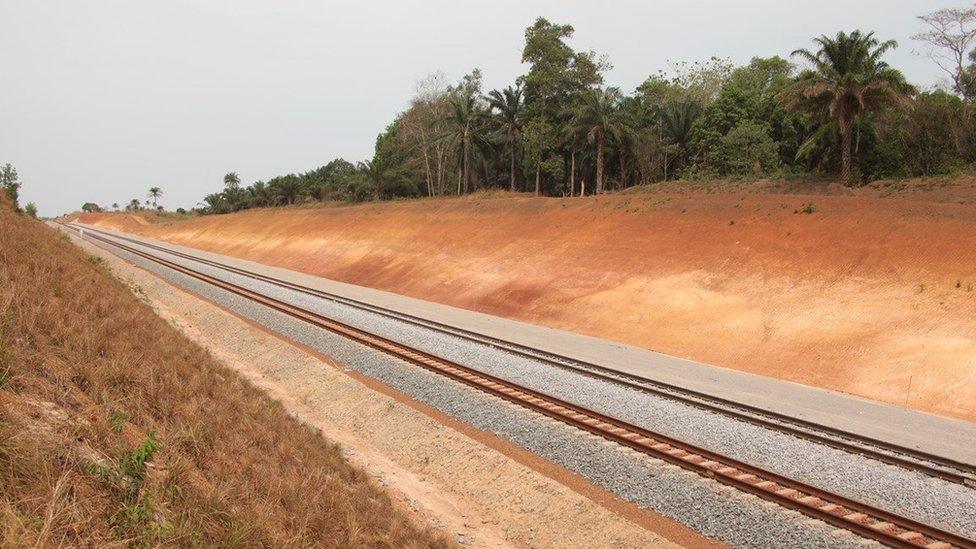
This 130km railway project between a mine and a port in Sierra Leone was worth $210m
Looking beyond Europe
But there is a world outside Europe. About £4bn of exports - and £6.4bn of imports - involve customers outside the EU.
Swansea-based construction firm Dawnus has plenty of work at home, including building a new school in Trimsaran, near Llanelli, and Cardiff's new £57m Eastern Bay link road.
But since 2010, the company has also been expanding its work in west Africa, including a railway and dam projects, as well as building hydro electric schemes in Liberia and an iron ore works in Sierra Leone.
Managing director of its international operations, Andy Peters, said: "As Brits, we underplay our skills sometimes. If you're resilient, hardworking and professional - and we speak English - and we're well respected in Africa.
"We've tapped into something that's there and British companies aren't doing that at the moment."
He hopes more support will come from the top - and he wants the UK government to promote and help business open up new markets.
"They can give soft loans to friendly governments to spend with British companies on infrastructure which will be game-changing projects for their countries.
"We need the work, they need the infrastructure - and we can provide life-changing opportunities for our young people as well."

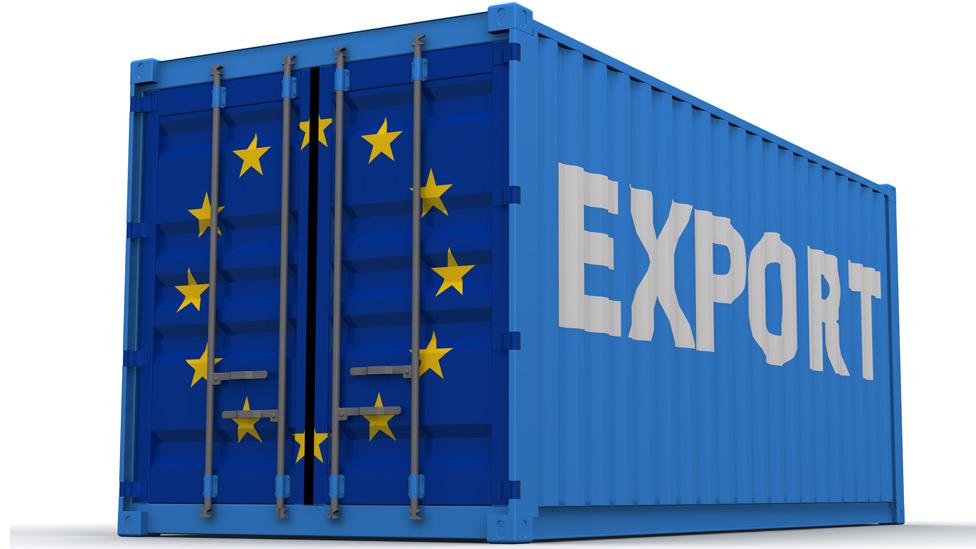
What the parties are saying on trade
The Conservatives would seek a "deep and special partnership", including comprehensive free trade and customs agreements, and seek to replicate all existing EU free trade agreements.
Labour would scrap the Conservatives' Brexit White Paper and replace with "fresh negotiating priorities" with strong emphasis on retaining the benefits of the single market and customs union.
The Liberal Democrats pledge membership of the single market and customs union.
Plaid Cymru wants all future trade deals endorsed by the National Assembly.
UKIP is publishing its manifesto next week but is pledging a "full Brexit" and control of borders.
The Green Partyis also to publish its manifesto but is promising to keep Britain "close to our European neighbours" and a second referendum if voters do not like the government's Brexit deal.

Brexit is one of the key issues in this election and there is much talk about what type of trading relationship we might or might not have.
Political parties are not giving us the detail of what deal they would make. Nor in reality can they, since that will ultimately be determined by the result of many months of negotiations with 27 member countries.
- Published27 March 2017
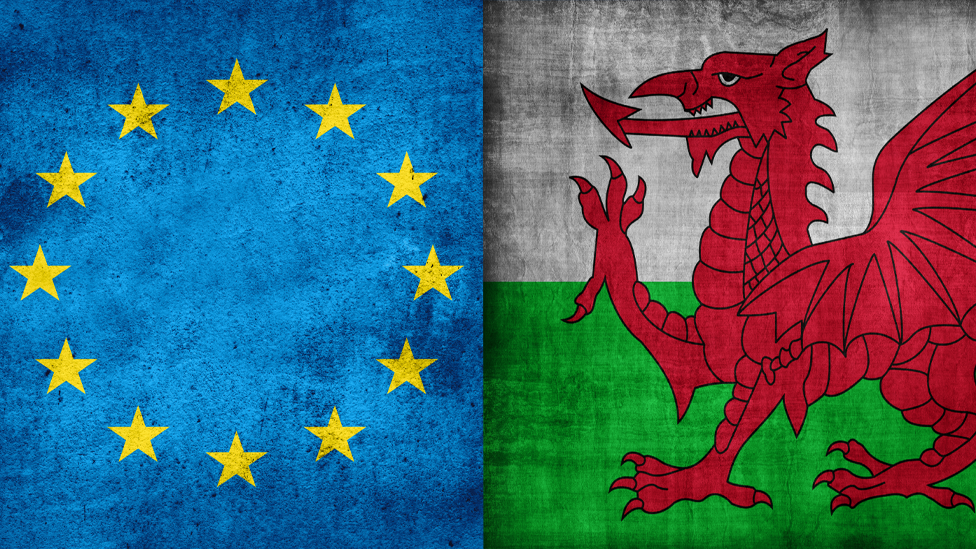
- Published17 May 2017
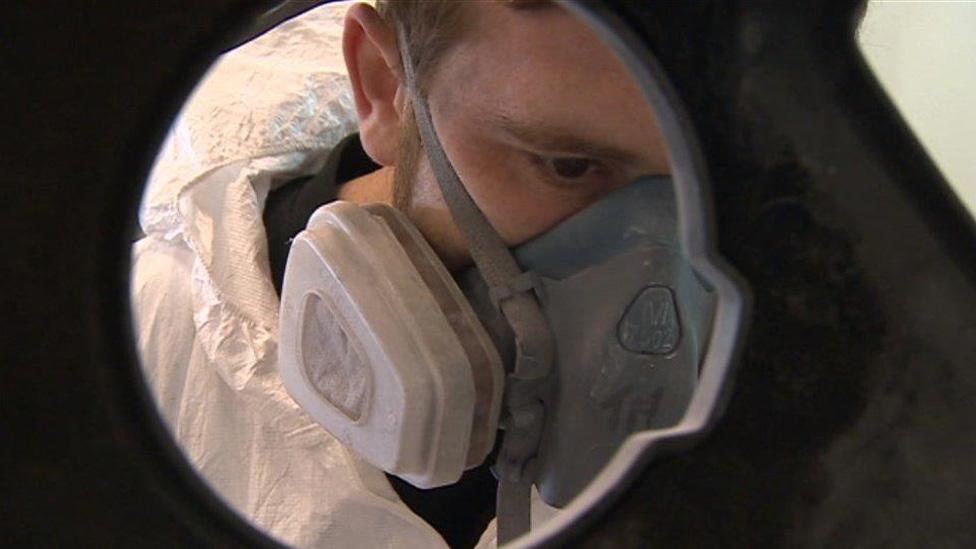
- Published24 January 2017
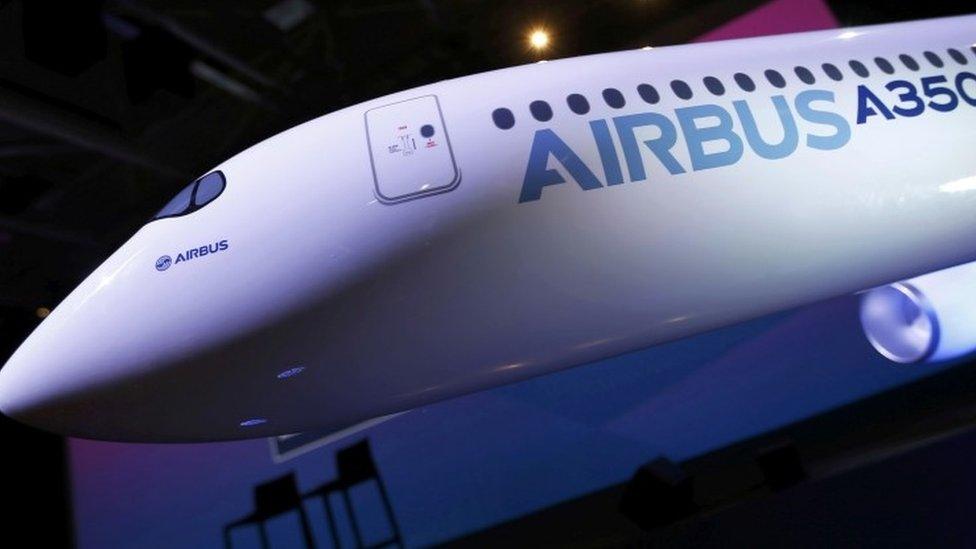
- Published18 January 2017
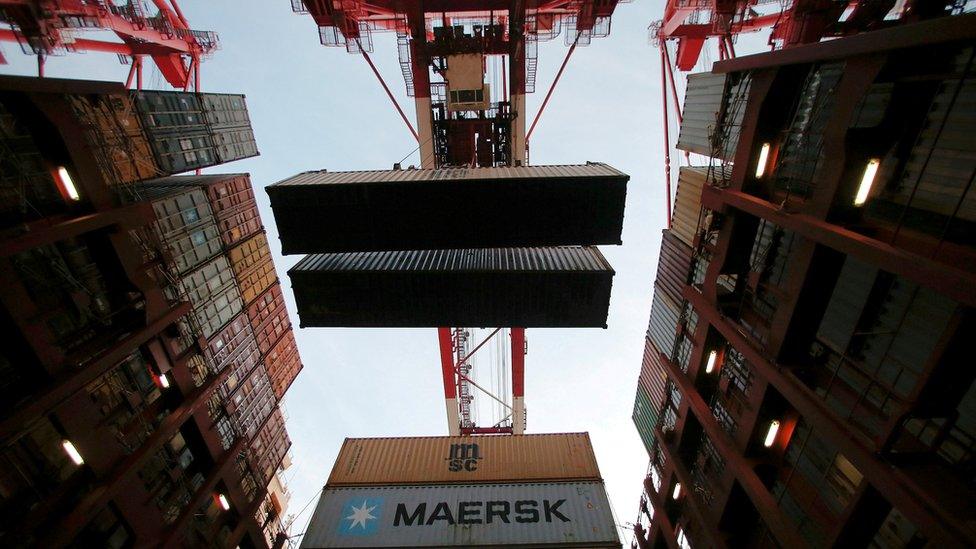
- Published11 May 2017

- Published5 September 2016
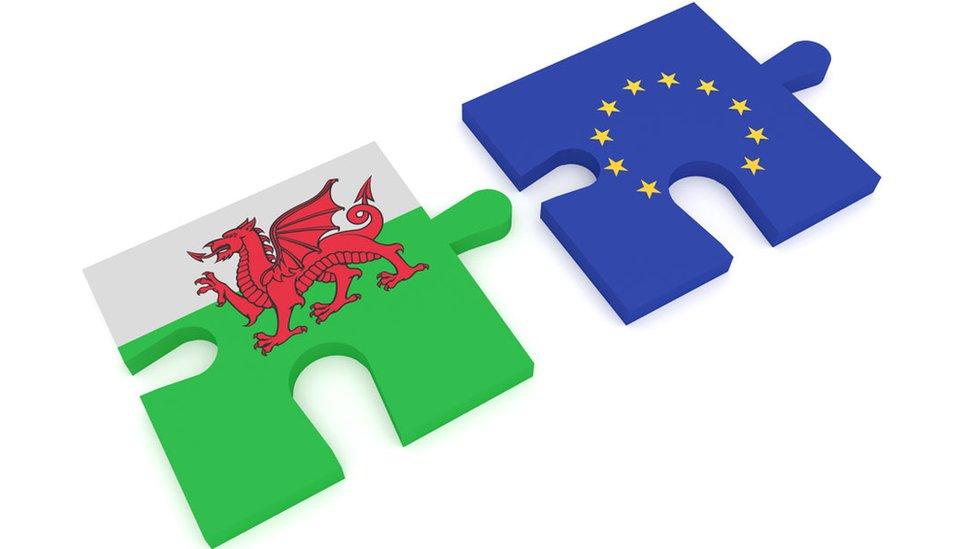
- Published29 March 2017
